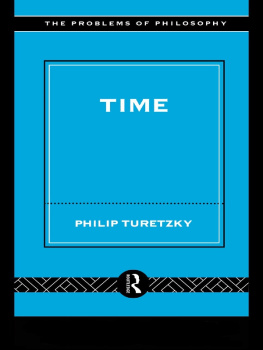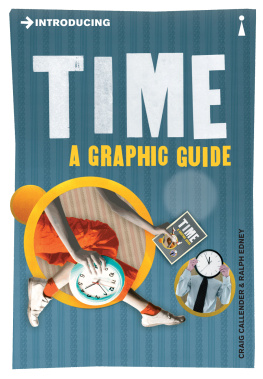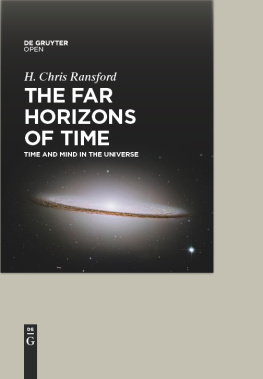Turetzky - Time
Here you can read online Turetzky - Time full text of the book (entire story) in english for free. Download pdf and epub, get meaning, cover and reviews about this ebook. City: London, year: 2000;2011, publisher: Routledge, genre: Romance novel. Description of the work, (preface) as well as reviews are available. Best literature library LitArk.com created for fans of good reading and offers a wide selection of genres:
Romance novel
Science fiction
Adventure
Detective
Science
History
Home and family
Prose
Art
Politics
Computer
Non-fiction
Religion
Business
Children
Humor
Choose a favorite category and find really read worthwhile books. Enjoy immersion in the world of imagination, feel the emotions of the characters or learn something new for yourself, make an fascinating discovery.
- Book:Time
- Author:
- Publisher:Routledge
- Genre:
- Year:2000;2011
- City:London
- Rating:3 / 5
- Favourites:Add to favourites
- Your mark:
- 60
- 1
- 2
- 3
- 4
- 5
Time: summary, description and annotation
We offer to read an annotation, description, summary or preface (depends on what the author of the book "Time" wrote himself). If you haven't found the necessary information about the book — write in the comments, we will try to find it.
Time — read online for free the complete book (whole text) full work
Below is the text of the book, divided by pages. System saving the place of the last page read, allows you to conveniently read the book "Time" online for free, without having to search again every time where you left off. Put a bookmark, and you can go to the page where you finished reading at any time.
Font size:
Interval:
Bookmark:

Time is a history of the philosophy of time in western philosophy from the Greeks through to the twentieth century. Philip Turetzky focuses on the role of time in the various ontological theories throughout history, arguing that, regardless of differences in ontological theories, time always functions as a boundary condition on phenomena.
The first half of the book explores ontological theories in ancient and modern philosophy. The second half describes the philosophy of time in three twentieth-century philosophical traditions: analytic philosophy, including philosophers such as McTaggart and Mellor; phenomenology, in the work of thinkers like Husserl and Heidegger; and a distaff tradition, which Turetzky identifies as including Bergson and Deleuze.
Time is an intriguing and enlightening read. It will be invaluable to anyone who has wondered about the nature of time.
Philip Turetzky is Instructor in Philosophy at Colorado State University.
Founding Editor: Ted Honderich
Editors: Tim Crane and Jonathan Wolff, University College London
This series addresses the central problems of philosophy. Each book gives a fresh account of a particular philosophical theme by offering two perspectives on the subject: the historical context and the authors own distinctive and original contribution. The books are written to be accessible to students of philosophy and related disciplines, while taking the debate to a new level.
Recently Published:
| SOCIAL REALITY Finn Collin | MORAL SELF Pauline Chazan |
| SUBSTANCE Joshua Hoffman and Gary S. Rosenkrantz | IF P THEN Q David H.Sanford |
| UTILITARIANISM Geoffrey Scarre | THE IMPLICATIONS OF DETERMINISM Roy Weatherford |
| VAGUENESS Timothy Williamson | KNOWLEDGE AND BELIEF Frederic F.Schmitt |
| DEMOCRACY Ross Harrison | MIND-BODY IDENTITY THEORIES Cynthia Macdonald |
| EXPLAINING EXPLANATION David-Hillel Ruben | THE NATURE OF ART A.L.Cothey |
| THE EXISTENCE OF THE WORLD Reinhardt Grossman | POLITICAL FREEDOM George G.Brenkert |
| THE INFINITE A.W.Meere | THOUGHT AND LANGAUGE J.M.Moravesik |
| THE MIND AND ITS WORLD Gregory McCulloch | THE WEAKNESS OF THE WILL Justine Gosling |
| NAMING AND REFERENCE R.J.Nelson | THE NATURE OF GOD Gerard J.Hughes |
| SCEPTICISM C.Hookway | PERCEPTION Howard Robinson |
| KNOWLEDGE OF THE EXTERNAL WORLD Bruce Anne | MORAL KNOWLEDGE Alan Goldman |

First published 1998
by Routledge
11 New Fetter Lane, London EC4P 4EE
This edition published in the Taylor & Francis e-Library, 2002.
Simultaneously published in the USA and Canada
by Routledge
29 West 35th Street, New York, NY 10001
1998 Philip Turetzky
All rights reserved. No part of this book may be reprinted or
reproduced or utilized in any form or by any electronic,
mechanical, or other means, now known or hereafter
invented, including photocopying and recording, or in any
information storage or retrieval system, without permission
in writing from the publishers.
British Library Cataloguing in Publication Data
A catalogue record for this book is available from the
British Library
Library of Congress Cataloging in Publication Data
A catalogue record has been requested for this title
ISBN 0-415-13948-1 (pbk)
ISBN 0-415-13947-3 (hbk)
ISBN 0-203-20771-8 Master e-book ISBN
ISBN 0-203-20774-2 (Glassbook Format)
Time, as a topic of study, extends to virtually every area of intellectual inquiry and practical engagement. It impinges on the natural sciences, the social sciences, literature and the arts, politics, economics, religion, and private life. The various roles of time in these areas cannot be isolated from one another without loss. No one study, especially one of so restricted a length, can encompass this complexity. This is not surprising, since time, in any of its roles, is a fundamental aspect of all that occurs, a boundary condition on phenomena.
This book is a work in the history of philosophy. Although it is restricted to the ontology of time as it developed historically in European thought from ancient Greece through the contemporary traditions in western philosophy, the topic remains vast in scope. The difficulty in presenting this material is exacerbated by the necessity of explaining the various ontological positions in sufficient detail to make sense of the role and nature of time in each position. This has made the task of writing the book a seemingly endless series of decisions about what would have to be left out. I have not had the luxury to discuss, in detail, alternative interpretations of each position, nor why I have selected the interpretations I give. More frustrating has been the limited space for commenting on the wealth of differences and interconnections, often finely nuanced, between various positions.
In Part One, I have tried to present the various positions without pretending they are clearer or better supported than they appear. Instead, I have adopted the useful fiction that philosophical thought can be pictured as unfolding within and among the writings of philosophical thinkers. The hope is that clarifications and criticisms emerge as immanent in the history as it unfolds. Nor have I attempted to assess the strength of arguments and positions or develop an original position on the nature of time. In Part Two I am not so concerned to settle the issues regarding each tradition, as much as to place them in relation to one another through several themes. In any case, I have tried to make the great wealth of source material clear in the notes and bibliography, so that the interested reader can explore the various problems. Moreover, I have tried by judicious use of connective comments and internal references to mark divergences and connections around which multiple virtual books may haunt the actual text.
Several people have read parts of the text and helped improve it immensely, although not even such excellent help could save me from many of my follies. I wish to thank Robert Welsh Jordan for helpful comments on the phenomenology chapters, Jane Kneller for helpful comments on the Kant chapter, and William Bogard likewise on the two final chapters. I have benefited from conversations with Michael McCulloch, Garrett Thomson, Thomas Trelogan, Suzanne Unger, David Utterback, among many others. People attending lectures I have given at Colorado State University and the College at Wooster Ohio, and students in courses at Ripon College and the University of Northern Colorado have challenged me to seek greater clarity and appreciation of the difficulties the ontology of time presents. I have received encouragement and editorial assistance from Tim Crane, Emma Davis, Adrian Driscoll, Anna Gerber, Shankari Sanmuganathan and Lisa Williams. Markham Roug helped with the drawing of some of the figures, Marie-Laure Marcaux aided in some translation from the French, and my brother, Howard Turetzky, has provided computer assistance over many years.
Font size:
Interval:
Bookmark:
Similar books «Time»
Look at similar books to Time. We have selected literature similar in name and meaning in the hope of providing readers with more options to find new, interesting, not yet read works.
Discussion, reviews of the book Time and just readers' own opinions. Leave your comments, write what you think about the work, its meaning or the main characters. Specify what exactly you liked and what you didn't like, and why you think so.












